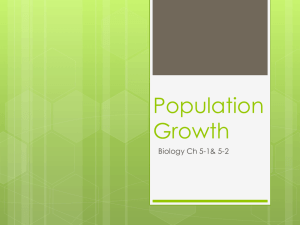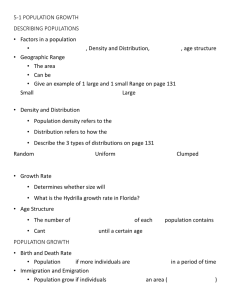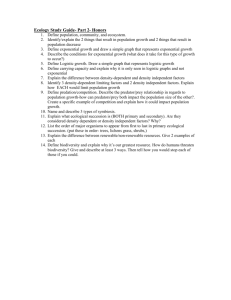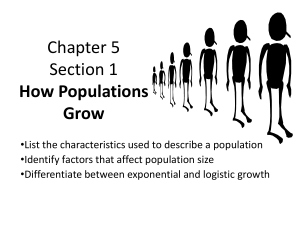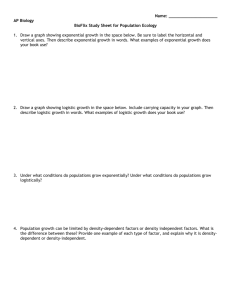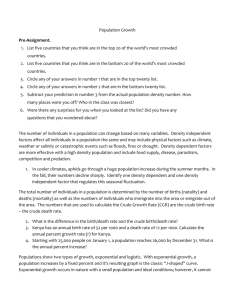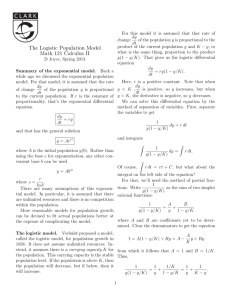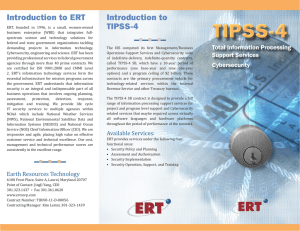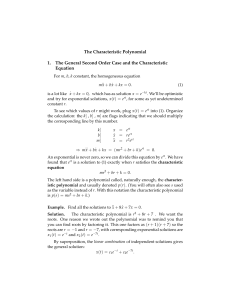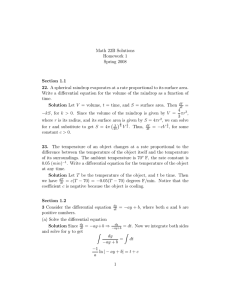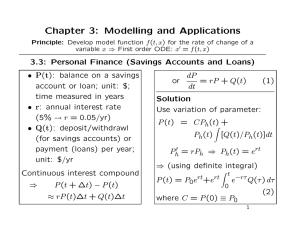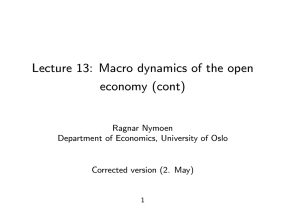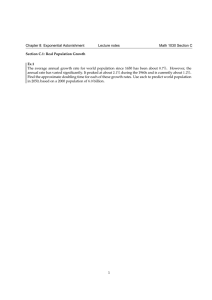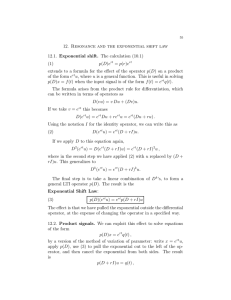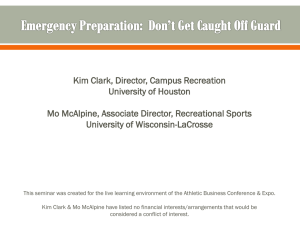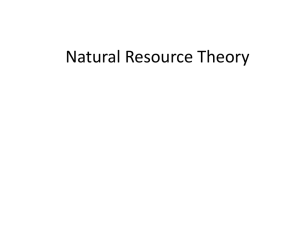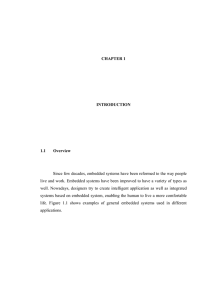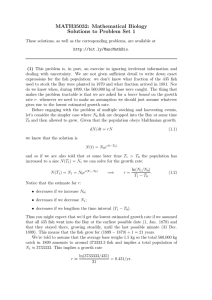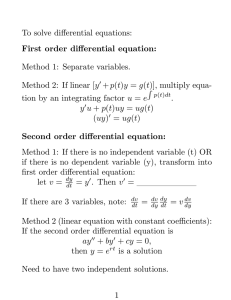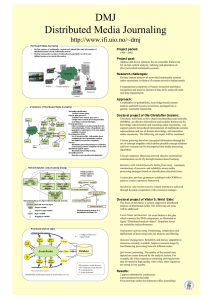N(t) = N + rt N = 10
advertisement
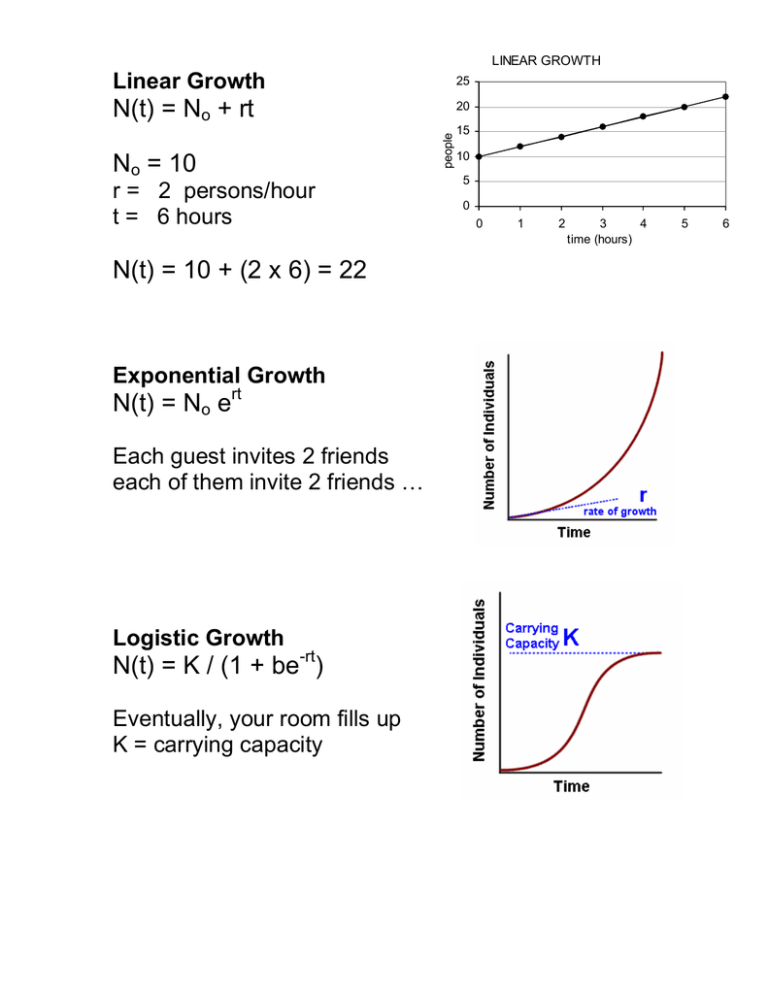
LINEAR GROWTH N(t) = No + rt 20 No = 10 r = 2 persons/hour t = 6 hours N(t) = 10 + (2 x 6) = 22 Exponential Growth N(t) = No ert Each guest invites 2 friends each of them invite 2 friends … Logistic Growth N(t) = K / (1 + be-rt) Eventually, your room fills up K = carrying capacity people Linear Growth 25 15 10 5 0 0 1 2 3 4 time (hours) 5 6 EXPONENTIAL GROWTH Find the final population after 20 years starting from a population of 15,000 with a growth of rate of 19 per thousand per year N(t) = No ert No = e = r = t = EXPONENTIAL GROWTH Find the final population after 20 years starting from a population of 15,000 with a growth of rate of 0.019 N(t) = No ert No = 15000 persons e = 2.718281828459045… r = 0.019 (1.9% 19 /thousand [persons per year]) t = 20 year Keystrokes 20 * 0.019 = 0.38 C 2.718281… e x^y 0.38 = 1.46228… * 15000 = 21,934.2… LOGISTIC GROWTH N(t) = K / (1 + be-rt) b = ln [(K - N0) / N0] K = 50,000 (carrying capacity) N0= 15,000 KEYSTROKES 50000 15000 = / 15000 = ln = 2.3333… 0.84729… (b) 20 * 0.019 = 0.38 35000 C (r*t) C 2.718281… x^y -0. 0.38 +/= * 0.84729… = + 1 = 1.579429 50000 / 1.579429 = 31,657 683861… 0.579429… C http://www.life.umd.edu/classroom/biol106h/L28/L28_popeco.html
